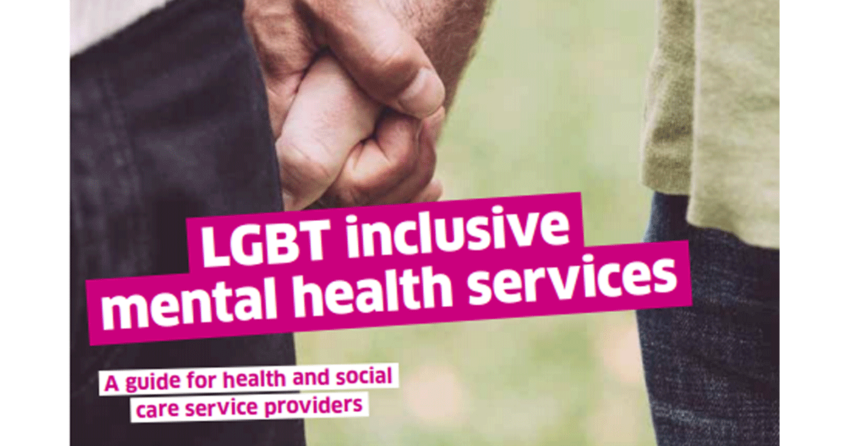LGBT Inclusive Mental Health Services
A guide for health and social care service providers produce in partnership with the Mental Welfare Commission for Scotland. We hope this guidance will raise awareness of LGBT rights in mental health services, and help health and social care services to provide high quality care and support to everyone with a mental illness.
People who are lesbian, gay, bisexual and/or trans (LGBT) make up at least 7% of the population. This percentage is probably higher as many people are reluctant to answer questions about their sexuality and/or gender identity in surveys.
LGBT people experience higher rates of mental ill health, particularly anxiety, depression and eating disorders, than the general population. There is also a higher rate of suicidal ideation and self-harm: 20-25% compared with 2.4% in the general population.
Gender and sexual orientation are protected characteristics under the Equality Act 2010 (for more information on the Equality Act 2010, see the equality section on page 15). Although this guide focuses on LGBT inclusion, much of the learning is transferable to other equality strands.
Mental illness is still linked with stigma, as is minority gender identity, sexual orientation and other protected characteristics such as ethnicity and disability. Stigma and negative interactions have a major impact on LGBT people’s mental health and wellbeing.
Stigma is particularly prevalent against transgender people: according to the Scottish Trans Alliance, 63% have experienced one or more negative interactions in general mental health services.
We believe that everyone – regardless of sexual orientation or gender identity – with a mental illness, learning disability, dementia or related condition should be treated with dignity and respect. We want mental health services to be as accessible as possible to LGBT people, to understand their needs, and deliver a positive person-centered experienc
Download file
